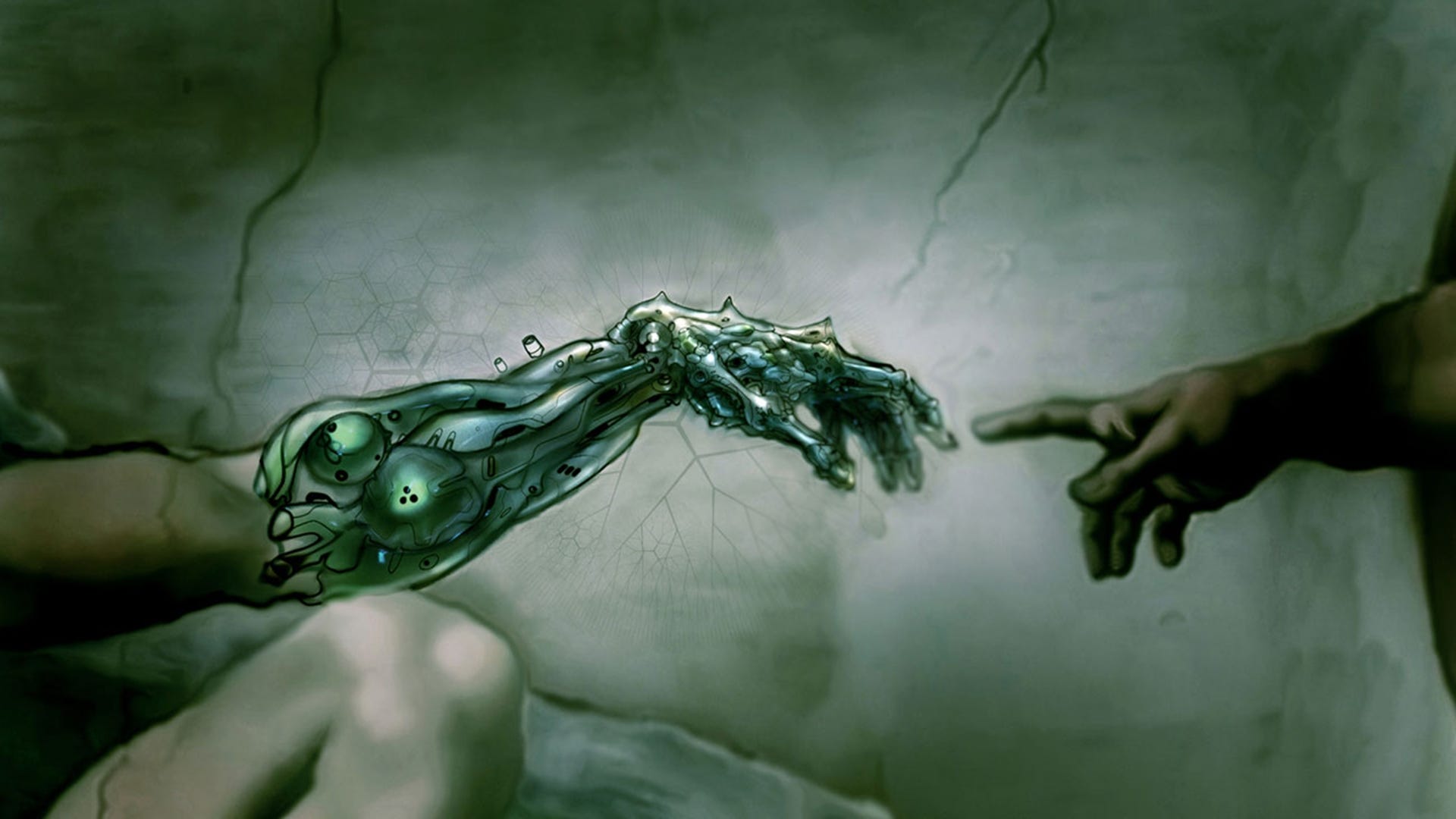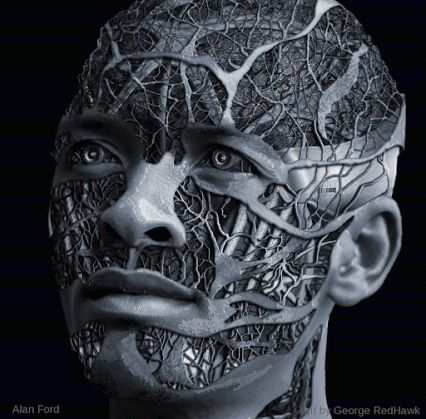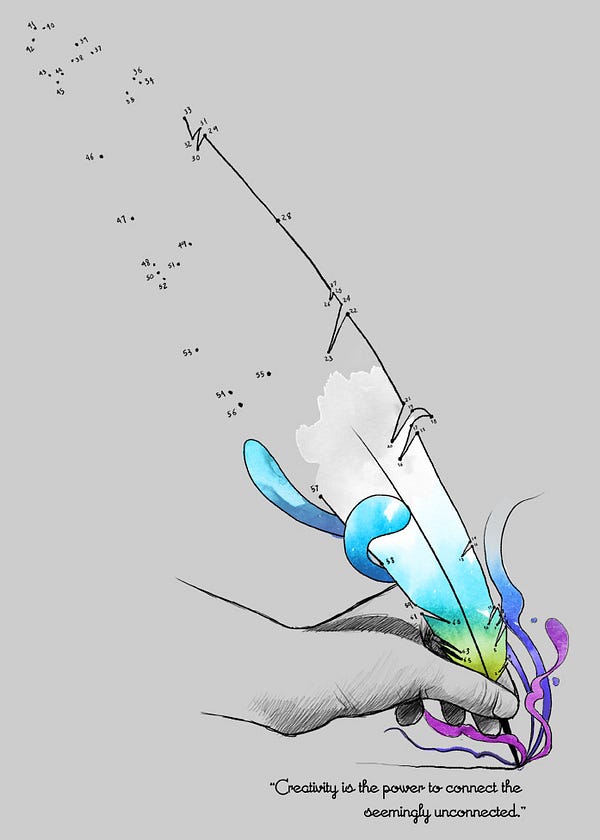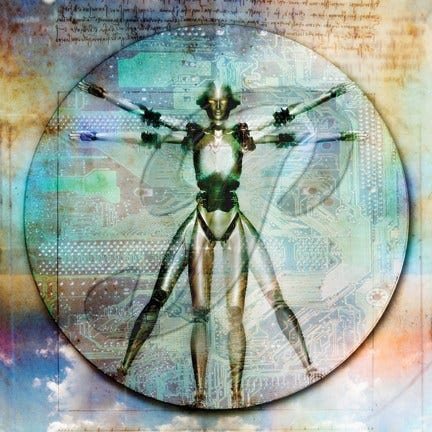
“A human being should be able to change a diaper, plan an invasion, butcher a hog, conn a ship, design a building, write a sonnet, balance accounts, build a wall, set a bone, comfort the dying, take orders, give orders, cooperate, act alone, solve equations, analyze a new problem, pitch manure, program a computer, cook a tasty meal, fight efficiently, die gallantly. Specialization is for insects.” — Robert A. Heinlein

Artificial Narrow Intelligence (ANI) also known as “Weak AI” or “Narrow AI” is the artificial intelligence that is prevalent in our world today.
Narrow AI is AI that is programmed to perform a very specific task extremely well. The more specific the task, the easier it is for a human to programme the machine.
Artificial General Intelligence AGI or “General AI” is where a machine can perform a variety of tasks comparable to a human.
“Strong AI”, “Super AI” or “Superintelligence” is artificial intelligence that can outperform human capabilities, but we are not there yet.
Moravec’s Paradox is the discovery by artificial intelligence and robotics researchers that, — contrary to assumptions — high-level reasoning requires very little computation, but low-level sensorimotor skills require enormous computational resources. This means it is harder for AI to perform general tasks than it is for AI to perform specific tasks.
For example, it is easier for an AI to learn what a surgeon does in surgery than it is to learn what the surgeon’s personal assistant does in their day-to-day tasks. The personal assistant must manage a very diverse workload, full of less economically valued, but quite complex tasks that require dozens of skills like creativity and empathy — skills that computers will never have. In comparison to a personal assistant, the surgeon’s tasks are relatively easy for AI. To an AI, surgery is a simple case of data in, probabilities out. The job of a personal assistant pays less than that of a surgeon not because they require fewer skills, but because the skills needed to be a personal assistant are widely available, whereas comparatively few people have the less common ability to perform surgery.
In 1966, philosopher and polymath Michael Polanyi argued that there is a vast realm of human knowledge that consists of learning and skills that lie beyond our explicit understanding. In other words, there are many tasks we understand intuitively how to perform but cannot verbalise the rules or procedures behind those tasks. For example, articulating every element of how you drive a car from point A to point B is quite difficult, there are many nuances that we take for granted. Polanyi’s paradox is considered a major obstacle in the fields of AI and automation since the absence of consciously accessible knowledge creates tremendous difficulty in programming. Polanyi’s Paradox is relevant in what previous innovation show guest Calum Chace describes as “the economic singularity” and “technical unemployment”, where AI and automation will replace low and high-skilled workers alike. In line with the Polanyi Paradox, a general rule of thumb is the more difficult it is to describe your role the less replaceable your role will be in the future.
With all this in mind, a new paradox comes to the fore. Today, hyper specialism means job security and higher economic value. Tomorrow, the more specific the task, the more programmable the task. The more programmable the task, the more replaceable the role.
HGI V HI
“Artificial intelligence will replace tasks, not jobs.” — Joe McKendrick

On this week’s innovation show we speak to author “The Polymath”, Waqās Ahmed. A polymath is “a person whose expertise spans a significant number of different subject areas”. I genuinely believe that the development of a multitude of skills will safeguard roles in the future.
Waqās outlines how the workforce has evolved to the point at which we are at today, a workforce focused on specialisation rather than polymathy. Specialisation comes from an outdated system from the industrial revolution, where we programmed to each have a role in the assembly line. Through a cocktail of education, socialisation and industrialisation we have arrived where we are today, where many of us have climbed to the top of our ladders of specialisation, only to realise the ladder is against the wrong wall.
When you look at a job spec, it usually lists a series of tasks for the successful candidate. This is important in the future for two reasons. The first is that we must realise that AI will not wipe out “jobs” in the first instance, it will wipe out the tasks that we do as part of jobs.
You will already have experienced the gradual integration of technology as AI progresses. Do you work in a bank? Have you noticed how gradually some of your colleagues have moved roles and some of their former tasks are now completed by a computer? We will increasingly witness the introduction of AI in such a way over the coming decade.
What does this mean for us now and for our coming generations?
Task-specific roles are akin to narrow AI, where the tasks are narrowly defined. Task-specific roles are at risk of replacement. For the sake of this Thursday Thought, let’s call this “Narrow HI” as in Narrow Human Intelligence. This is where the specialist is at risk.
Roles entailing a multitude of disciplines are akin to AGI or artificial general intelligence. In this hypothesis, let’s call this Human General Intelligence or HGI. HGI is the realm of the Polymath. The combination of the tasks, skills and passions pursued by the Polymath might just be the key to labour force longevity.
The Magic (Polymath) Happens at the Intersections

There is an adage in innovation that magic happens at the intersections.
When you explore many innovations and discoveries, they often happen at the intersection of one discipline with another.
This happens when a polymath like Steve Jobs meets a polymath specialist like Steve Wozniak.
Jobs was interested heavily in calligraphy and design, he understood technology and he excelled at product development and marketing. Wozniak was a renowned inventor, tinkerer and computer engineer. When they met, the magic happened at the intersection of their passions.
The polymath connects seemingly unconnected dots, that others may not consider as interconnected. Other times, it is because the polymath who possesses a wide variety of skills, specialities and passions can see through a very unique series of lenses.
While such fusion is at the heart of innovation, it is becoming increasingly important for careers of the future. There is no doubt that the labour market of tomorrow will become a co-opetition between humans and robots, like any change it will happen gradually at first and eventually permeate society.
It is important for humans to upskill in a variety of realms. Yes, we will need skills such as empathy, emotional intelligence and intellectual creativity, but in addition, we will need to pursue passions that intrigue us and draw forth our curiosity.
“This is What it Looks Like When The Future Comes For You”

Ken Jennings is known for holding the longest winning streak in history on the US quiz show Jeopardy. Jennings is also known as the player who was famously beaten by IBM’s artificially intelligent machine known as Watson. In his TED talk, Jennings explained how felt when he realised Watson was beating him and would soon replace him in the thing he was once best at…
“And I saw this line coming for me. And I realised, this is it. This is what it looks like when the future comes for you. It’s not the Terminator’s gunsight; it’s a little line coming closer and closer to the thing you can do, the only thing that makes you special, the thing you’re best at.”
The thing we are best at may be the very thing that trips us up. We never can rest on our laurels. We should consider upskilling beginning with those subjects that tease our curiosity and those things that drive us. One thing is sure in the future, learning will need to part of everything we do. I leave with a quote from William Pollard.
“Learning and innovation go hand in hand. The arrogance of success is to think that what you did yesterday will be sufficient for tomorrow. “ — William Pollard
Do you feel restricted by your career, by your workplace identity?
Do you feel you are not doing what you would really like to do?
Are you good at many things, but feel you cannot do them for fear of appearing odd or going against the grain?
You may just be a polymath and that is a major gift!
Every human is born with multifarious potential.
Why, then, do parents, schools and employers insist that we restrict our many talents and interests; that we ‘specialise’ in just one?
We’ve been sold a myth, that to ‘specialise’ is the only way to pursue truth, identity, or even a livelihood. Yet specialisation is nothing but an outdated system that fosters ignorance, exploitation and disillusionment and thwarts creativity, opportunity and progress.
Following a series of exchanges with the world’s greatest historians, futurists, philosophers and scientists, Waqas Ahmed has weaved together a narrative of history and a vision for the future that seeks to disrupt this prevailing system of unwarranted ‘hyper-specialisation.’
In The Polymath, Waqas shows us that there is another way of thinking and being. Through an approach that is both philosophical and practical, he sets out a cognitive journey towards reclaiming your innate polymathic state. Going further, he proposes nothing less than a cultural revolution in our education and professional structures, whereby everyone is encouraged to express themselves in multiple ways and fulfil their many-sided potential. Not only does this enhance individual fulfilment, but in doing so, facilitates a conscious and creative society that is both highly motivated and well equipped to address the complexity of 21st-century challenges
We discuss:
- What is a Polymath?
- How did we get to this age of specialisation?
- Polymaths through time
- Polymathy as a gift
- Polymaths in an age of Artificial Intelligence
- Educational Reform
- Workplace Reform
- Social Reform
- A cognitive Revolution?
Have a listen:
Soundcloud https://lnkd.in/gBbTTuF
Spotify http://spoti.fi/2rXnAF4
iTunes https://apple.co/2gFvFbO
Tunein http://bit.ly/2rRwDad
iHeart http://bit.ly/2E4fhfl
More about Waqās here: https://www.the-polymath.com/author